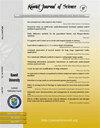Exploring spatial machine learning techniques for improving land surface temperature prediction
Abstract
Land Surface Temperature (LST) is a crucial parameter in Earth observation and environmental studies due to its significance in various fields. The purpose of this study is to investigate the effects of including spatial information into the Random Forest (RF) and eXtreme Gradient Boosting (XGBoost) models for forecasting LST. The significance and impact of each input parameter on the models' predictive capabilities are assessed using the SHAP (SHapley Additive exPlanations) approach and the model intercomparisons were done using the error evaluation metrices. The predictions were further validated using the Pearson correlation, independent samples t-test and potential geographic anomalies in the predictions are examined by spatial comparison of predicted errors using classification maps and error envelopes. The projected errors are within the acceptable range and range from −2.267 °C to 1.292 °C for the spatially enhanced RF model and from −1.675 °C to 1.439 °C for the spatially enhanced XGBoost model. These error ranges closely align with the training data's quality flag of ±2 °C, demonstrating the models' capability to predict LST accurately and within a reasonable error range. The findings show the significance of adding spatial information for precise LST prediction and draw attention to possible uses for such models in environmental monitoring and management. The work advances our understanding of spatial modelling strategies and offers practical guidelines for enhancing LST forecasts.

 求助内容:
求助内容: 应助结果提醒方式:
应助结果提醒方式:


